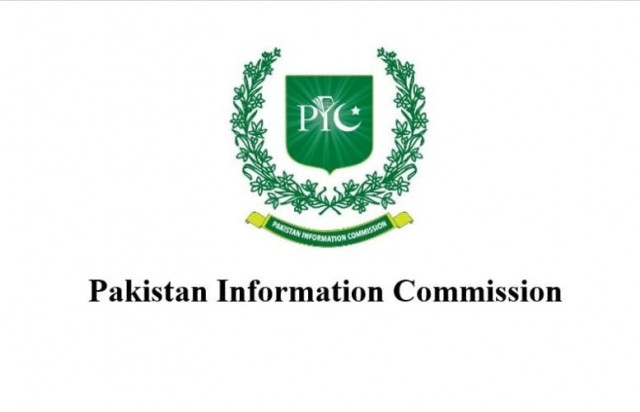PIC directs registrar to share SC's audit reports
Commission tells court official to disclose details of last five years within seven days

Despite his refusal, the Pakistan Information Commission (PIC) has directed the Supreme Court registrar to share the audit reports of the apex court’s accounts for the last five years within seven days.
The audit reports sought are for the periods of fiscal years 2019-20, 2018-19, 2017-18, 2016-17, and 2015-16.
Appellant Mukhtar Ahmed Ali, on January 1, had filed an appeal with the PIC wherein it was stated that he had submitted an information request to the SC registrar on November 29, 2021 under the Right of Access to Information Act, 2017. However, he had added that he was not satisfied with the response of the registrar.
The applicant had sought copies of relevant rules, regulations, orders and decisions which provide guidance as well as direction about how the Supreme Court’s accounts should be audited.
Similarly, he had requested to provide the audit reports of the top court’s accounts for the last five years.
He had also sought details of any fee, compensation or charges paid to any firm for conducting the audit of the Supreme Court accounts for the last five years in case it was carried out by a private company instead of the auditor general of Pakistan.
The SC registrar on January 14 had said that the right to seek information had been granted under Section 3 of the Act, 2017.
“It is evident that only information and records held by a public body are accessible under the Act, 2017. Although the definition of a ‘public body’, provided in the Act, 2017 is very exhaustive, the legislature in its wisdom did not include this court within the folds of [the] definition and excluded it from the purview of the Act, 2017,” the registrar contended.
The PIC, in response to the contention, issued an order that the commission had already held that the SC registrar came within the definition of a public body under Section 2 (xi) (e) which was “any court, tribunal, commission, or board under the federal law".
The commission also noted that in the absence of any judgment of any of the high courts or that of the SC that barred citizens from seeking information from the apex court’s registrar under the Right of Access to Information Act on the grounds that it was tantamount to curbing independence of the judiciary, the PIC was left with no option but to determine the likelihood of any such eventuality.
"The honourable Supreme Court as a public institution performs two kinds of functions i.e., a) judicial functions and b) administrative functions pertaining to procurements and recruitments, involving public funds, like any other public institution,” the PIC observed in its order.
“This commission is of the view that the exercise of constitutional and statutory rights of citizens in matters of public importance through the Act is neither likely to, nor, designed to curtail independence of the superior judiciary. This commission also believes that exercise of constitutional right of access to information in matters of public importance through the Act cannot be equated with executive oversight of superior judiciary,” it added.
"The categories of information to be proactively disclosed under Section 5 of the Act have no bearing on the independence of the judiciary. Similarly, the information to be provided to the applicants under Section 6 of the Act is also not in conflict with the independence of the judiciary. Furthermore, the public information officer to be designated under the Act will receive applications and can turn down any request for information which is likely to impact independence of the judiciary, relying on the relevant exemption clauses of Section 7 and 16 of the Act,” the order further read.
“This commission is of the view that the constitutional right of access to information in matters of public importance can only be restricted on reasonable grounds supported by law. This commission holds that only provisions of this Act can restrict disclosure of any information. This commission maintains that the disclosure of the requested information is permissible under the provisions of the Act, 2017, the PIC order stated.
The PIC maintained that the SC registrar was legally bound to proactively publish the requested information about ‘copies of relevant rules, regulations, orders and decisions which provide guidance or direction about how the Supreme Court’s accounts should be audited, on its website as required under Section 5 of the Act, 2017.
"Similarly, the respondent (SC registrar) was legally bound to proactively publish the requested information about the audit reports of the Supreme Court’s accounts for the last five years [on] its website as required under Section 5 of the Act, 2017,” it added.
"This commission also holds that the requested information about [the] details of any fee, compensation or charges paid to audit firms for the conduct of audit of Supreme Court accounts for the last five years i.e. if the audits were conducted by private firms and not by the auditor general of Pakistan, is permissible under Section 6 (b) and (c) of the Act, 2017, the order read.
The commission allowed the appeal and directed the SC registrar to provide the appellant with the requested information at the earliest, but not later than seven working days of the receipt of this order.
“[The] worthy registrar of the Supreme Court of Pakistan is directed to take immediate steps to proactively share through the website all categories of information mentioned in Section 5 of the Right of Access to Information Act 2017, ensuring accessibility of the information proactively published on its website for all citizens, including the blind, low-vision, physically disabled, speech and hearing impaired and people with other disabilities,” the commission ordered.
The PIC is led by Chief Information Commissioner Muhammad Azam and comprising Information Commissioner Fawad Malik and Information Commissioner Zahid Abdullah.
The SC registrar, through the attorney general for Pakistan (AGP), has already challenged before the IHC the PIC’s earlier decision to share details about the apex court’s staff.
The matter on pre-admission stage is still pending in the IHC.


















COMMENTS
Comments are moderated and generally will be posted if they are on-topic and not abusive.
For more information, please see our Comments FAQ